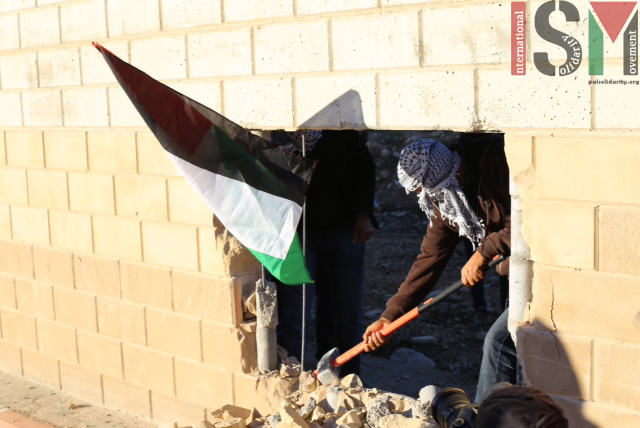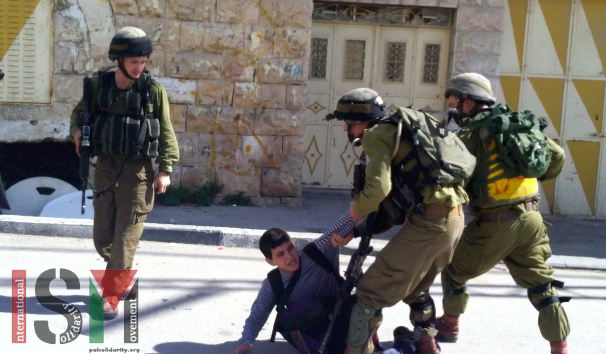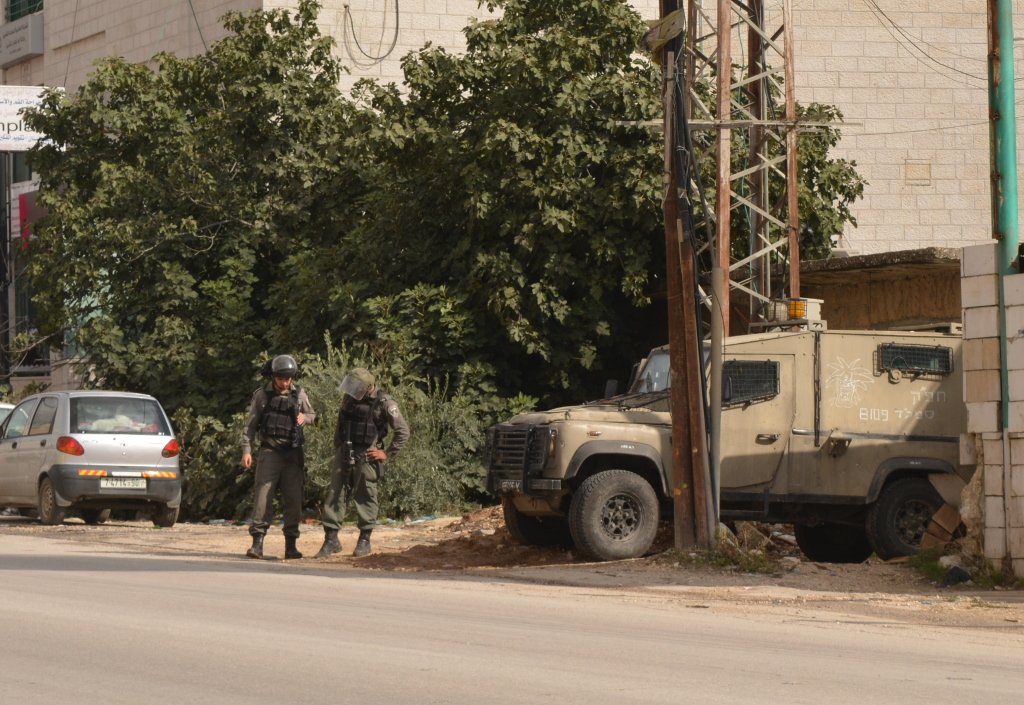Category: Reports
-
Palestinian activists destroy section of Apartheid wall
9th November 2014 | International Solidarity Movement, Ramallah Team | Beit Hanina, Occupied Palestine Yesterday, to mark the anniversary of the fall of the Berlin wall today, a direct action took place in Beit Hanina, a neighbourhood in Jerusalem. ISM and international volunteers supported the Palestinian-led action, which involved demolishing a section of the Apartheid wall using…
-
VIDEO: 14-year-old violently arrested in Hebron
6th November 2014 | International Solidarity Movement, Khalil Team | Hebron, Occupied Palestine On October 30th, a 14-year-old boy was violently arrested by Israeli forces in al-Khalil (Hebron). Due to a teachers strike in solidarity with underpaid public workers, school in Hebron finished at 10:00 in the morning. Several young boys threw stones towards the military, armed…
-
Military places curfew on Huwwara village, arrests two young men, and raids Palestinian homes
5th November 2014 | International Solidarity Movement, Nablus Team | Huwwara, Occupied Palestine On Friday the 31st of October, approximately 300 Israeli soldiers invaded the village of Huwwara, near Nablus. They fired tear gas canisters and stun grenades, seemingly in attempt to clear the streets of people, and declared the village to be a closed military…



